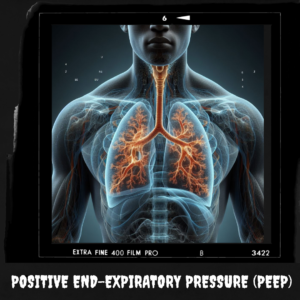Introduction:
In the fast-paced world of healthcare, it’s no secret that stress is a constant companion. However, the conventional wisdom that work stress primarily stems from the hectic environment within healthcare facilities might be missing a crucial piece of the puzzle. In this controversial article, we will challenge the prevailing notion and argue that work stress in healthcare often manifests itself when professionals step out of their workplace, burdened by the indelible images and experiences they encountered during their demanding shifts. We will explore the repercussions this has on their families and loved ones and provide practical tips to help healthcare workers switch off and recharge.
The Aftermath of a Demanding Shift:
Healthcare professionals, be it doctors, nurses, or paramedics, frequently encounter intense situations that leave a lasting impact. The emotional toll of witnessing trauma, dealing with life-or-death decisions, and managing high-pressure environments can be overwhelming. Contrary to popular belief, it’s not the immediate work environment that breeds stress but rather the aftermath when individuals leave their workplace.
Impacts on Families and Loved Ones:
When healthcare workers are unable to detach themselves from the experiences and images they encountered during their shift, it affects their families and loved ones significantly. Emotional exhaustion, irritability, and the inability to engage fully in personal relationships can strain family dynamics. Moreover, the chronic nature of this stress can lead to long-term mental health issues, such as depression and anxiety, which can further impact the overall well-being of the healthcare professional and their loved ones.
The Necessity of Switching Off:
To mitigate the adverse effects of work stress, it is imperative for healthcare workers to find effective ways to switch off after their shift. Simply relying on a good night’s sleep is often insufficient to process and compartmentalize the emotional baggage carried from the workplace. Switching off helps in achieving mental and emotional restoration, which, in turn, promotes healthier relationships and overall well-being.
Tips for Switching Off:
- Establish Boundaries: Clearly define the boundaries between work and personal life. Create a ritual or transition period that allows you to mentally and emotionally detach from work before entering your personal space.
- Engage in Mindfulness and Relaxation Techniques: Incorporate activities like meditation, deep breathing exercises, or yoga into your daily routine. These practices promote relaxation, reduce anxiety, and help in clearing the mind.
- Pursue Hobbies and Interests: Engaging in activities outside of work that bring joy and fulfillment can help shift focus away from work-related stress. Whether it’s reading, painting, sports, or spending time with loved ones, finding outlets for self-expression is crucial.
- Seek Support: Talking to a trusted friend, colleague, or mental health professional can provide an outlet for processing work-related stress. Sharing experiences and emotions can offer perspective and support, enabling you to better cope with the challenges faced in the healthcare profession.
- Disconnect from Technology: Limit exposure to work-related messages and notifications during personal time. Create boundaries around technology usage and avoid checking work-related emails or messages outside of work hours.
Conclusion:
While work stress is an inherent aspect of the healthcare profession, it is vital to recognize that it doesn’t necessarily end when professionals leave their workplace. The inability to switch off from work can significantly impact the well-being of healthcare workers and their families. By adopting practical strategies to detach from work, healthcare professionals can protect their mental and emotional health, nurture their relationships, and recharge themselves. It is through these intentional efforts that the cycle of work stress can be broken, leading to healthier, more fulfilling lives both inside and outside the healthcare setting.




